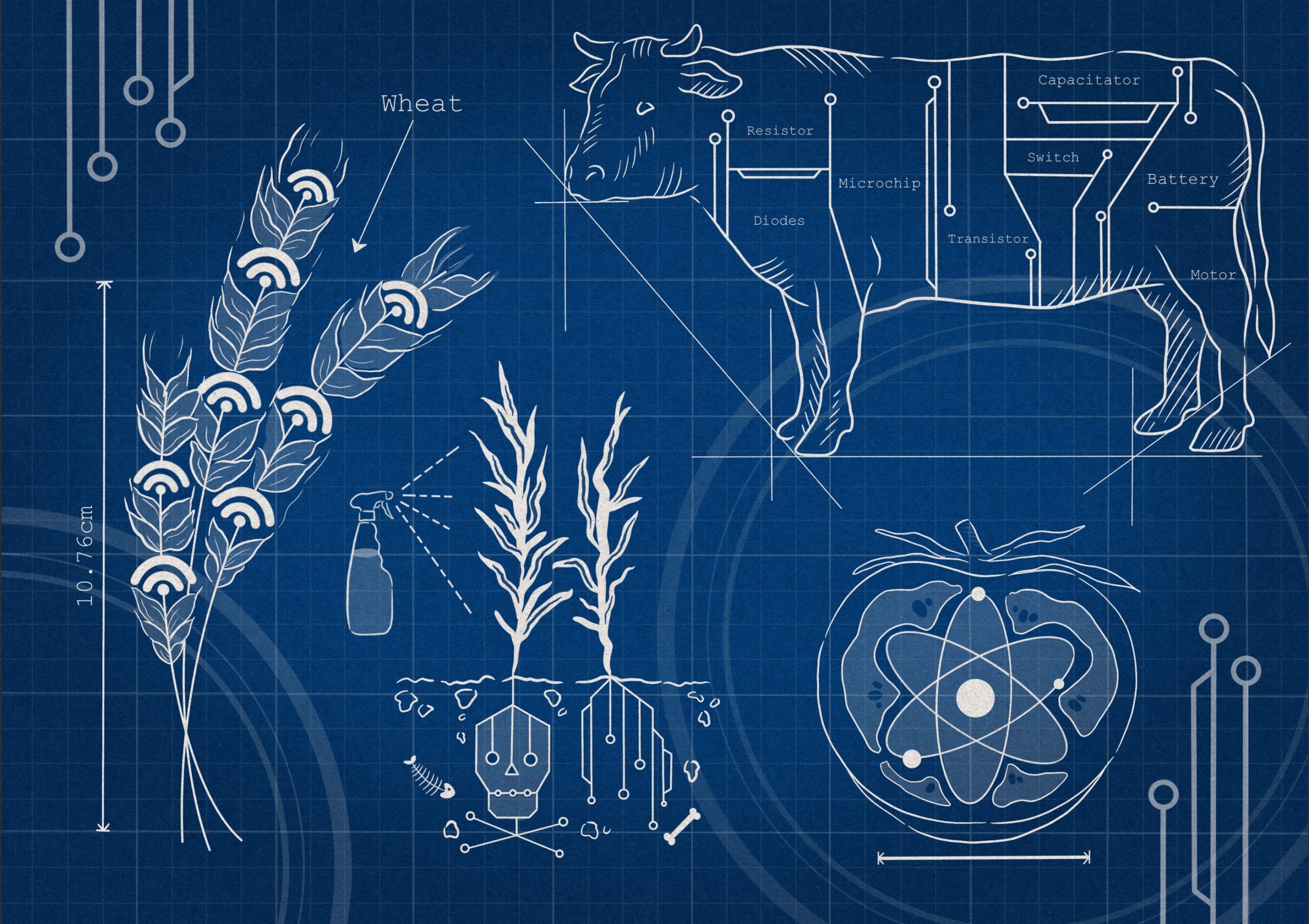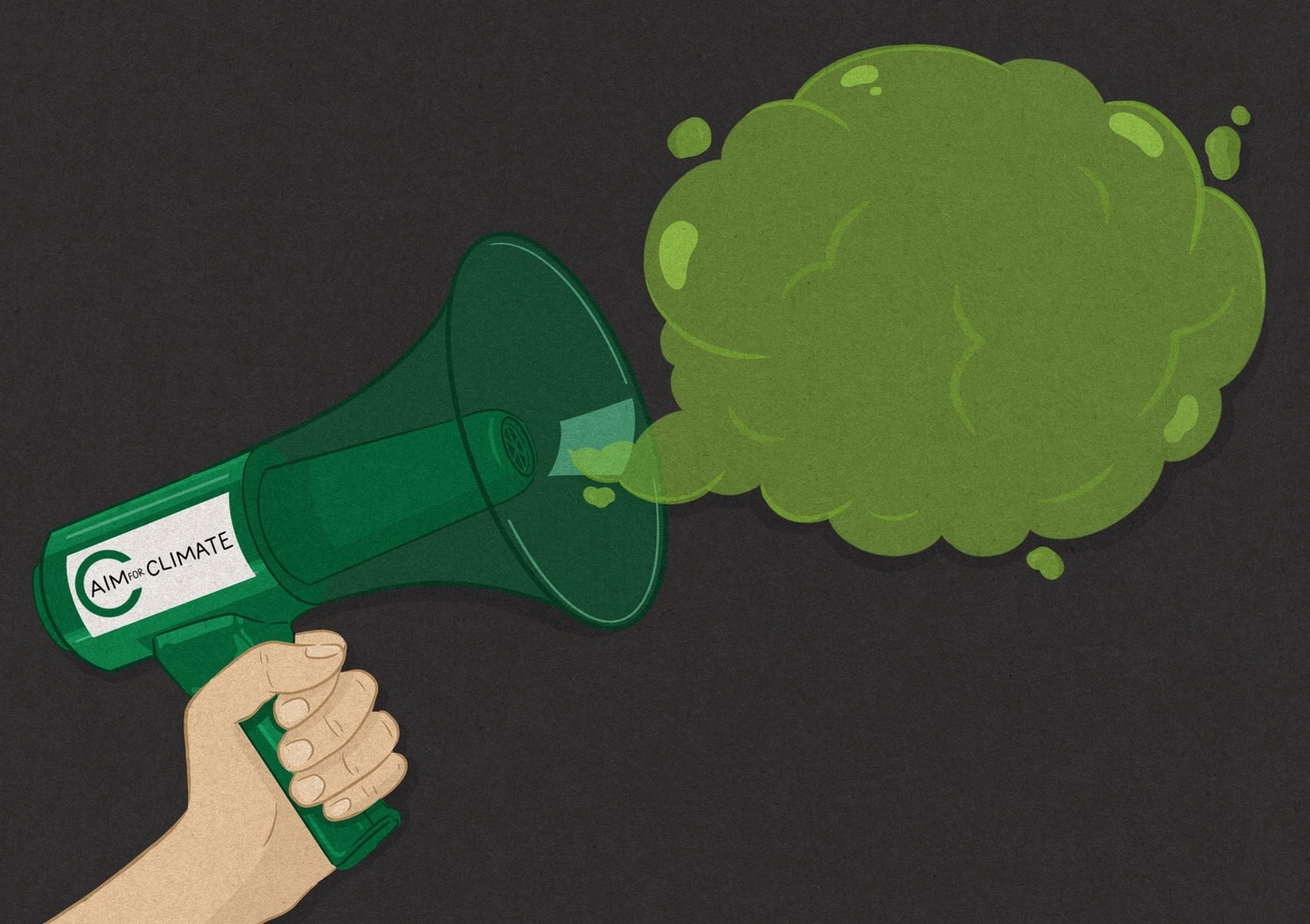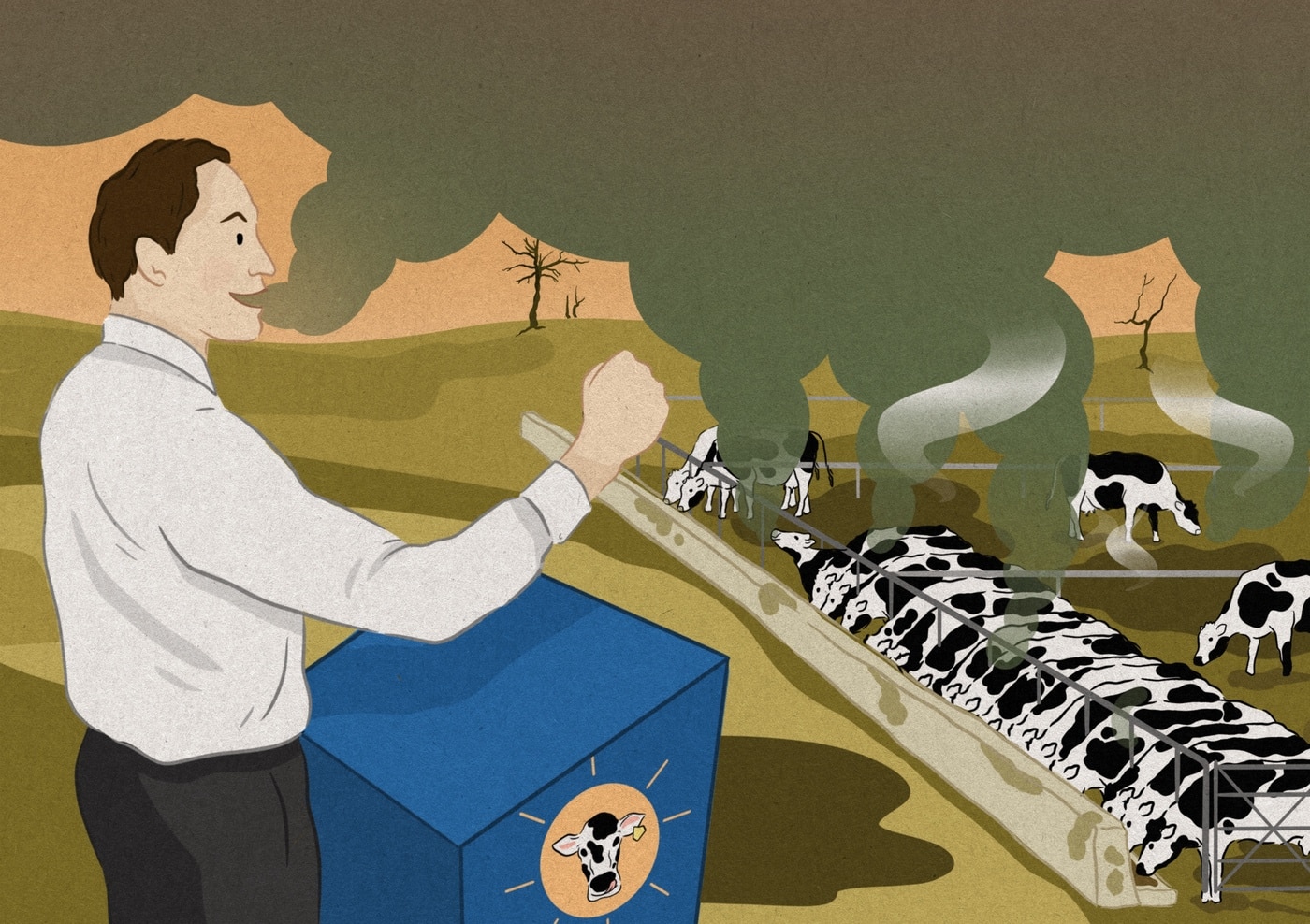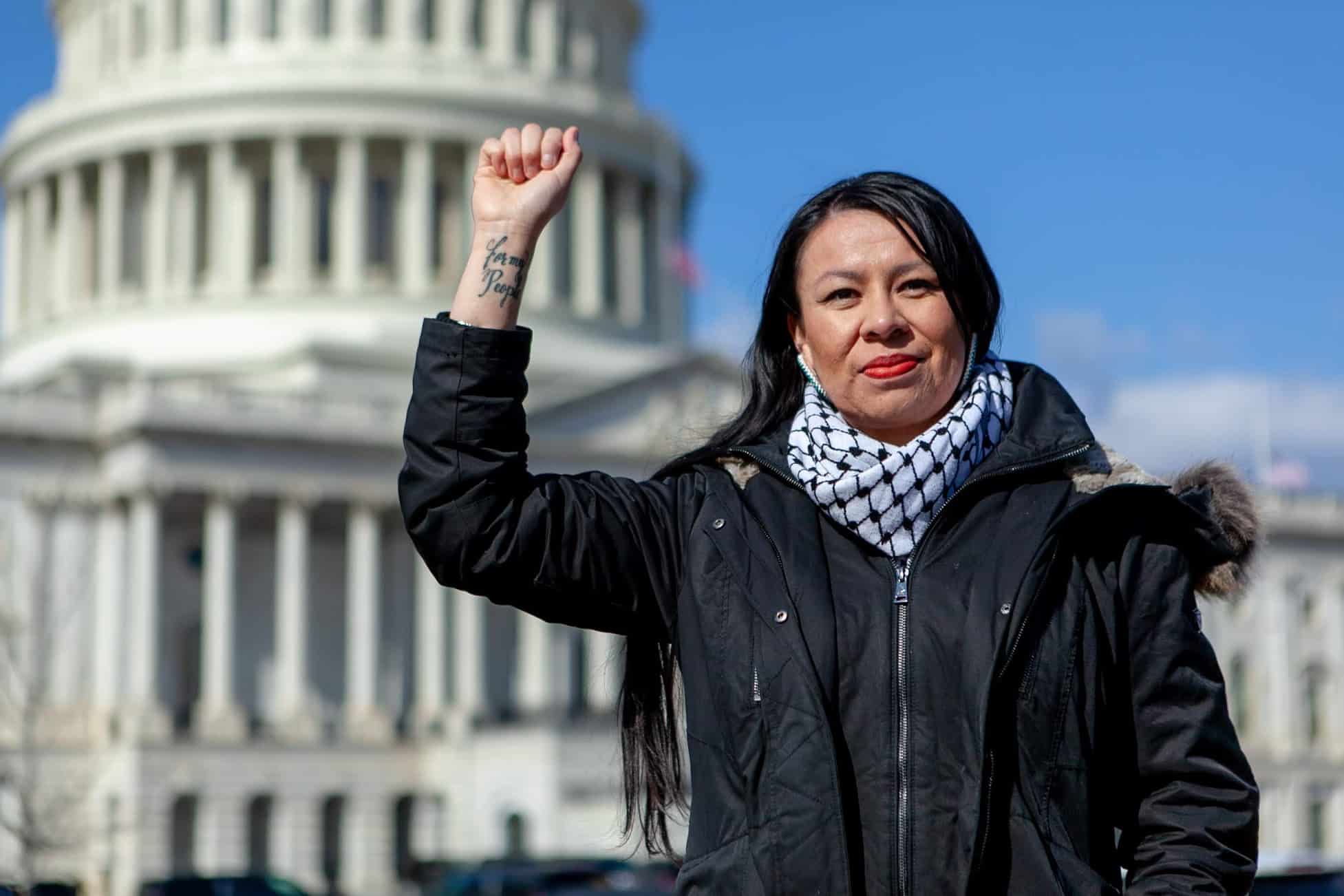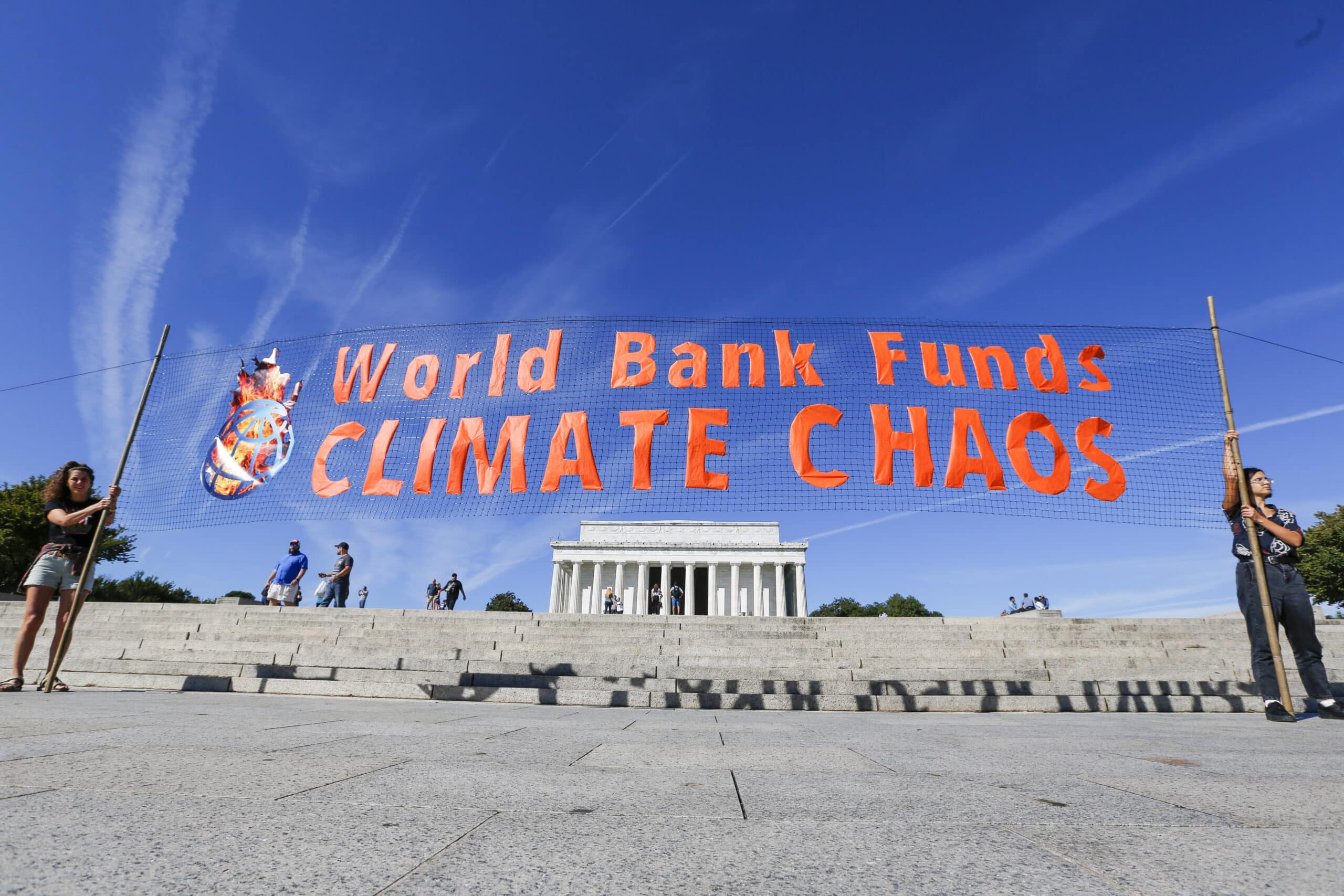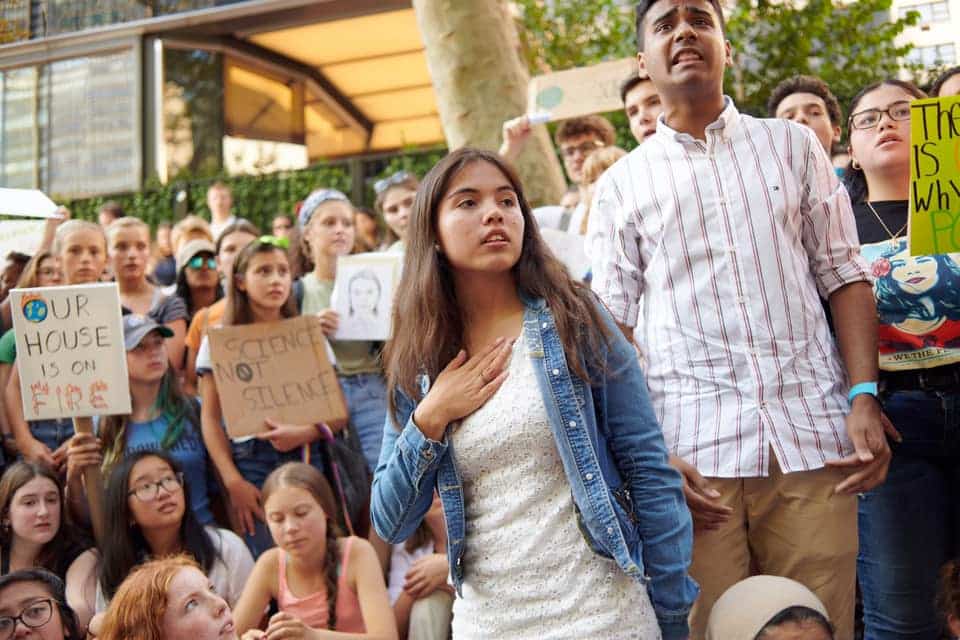
Message From the Editor
This week, we rolled out a new series that delves into the AIM 4 Climate coalition. Launched at the COP26 climate conference in Glasgow last year by the United States and United Arab Emirates, the coalition pledged to accelerate innovation in agriculture and food systems to support climate action.
Backers say AIM4C intends to unlock new technologies that can help reduce the agriculture sector’s major contribution to climate change while making harvests more resilient. But food and farming groups have publicly criticized the coalition, accusing it of championing industry-friendly and unproven climate “solutions” instead of spurring a transformative embrace of diverse, regenerative agriculture.
There’s also concern about some of the coalition’s partners. For instance, Brazilian meat giant JBS — described as “the highest emitting meat and dairy company in the world” — sits on the steering committee of a “Greener Cattle” research push.
And we found organizations with a history of climate denial among AIM4C’s ranks. The North American Meat Institute (NAMI) — which claims on its website that the degree to which human activities lead to climate change is “unknown” and has also previously pushed back against measures to address climate change — is listed as a “knowledge partner.”
At COP27, which kicks off in less than a month, the coalition will be pushing for investment in high-tech farming innovations. We’ll be there, digging deeper into the AIM4C story.
Have a story tip or feedback? Get in touch: [email protected]. Stay on top of developments in the new Truss government with our UK newsletter.
Thanks,
Brendan DeMelle
Executive Director
P.S. DeSmog has been investigating webs of climate denial and delay for over 15 years. Can you donate $10 or $20 right now to support our climate accountability reporting and research?
Image credit: Rosie Hunter
Big Agriculture Casts Itself as Climate Champion Ahead of COP27
— By Rachel Sherrington (7 min. read) —
A US-led sustainable farming initiative, which aims to raise billions of dollars to tackle climate change, has been criticized for favouring big business and promoting uncertain techno-fixes ahead of U.N. climate talks in Egypt in November.
Launched at the COP26 climate conference in Glasgow last year by the U.S. and United Arab Emirates governments, the AIM for Climate (Aim4C) coalition pledged to accelerate innovation in agriculture and food systems to support climate action.
COP27 Farming Coalition Under Fire for Links to Climate Science Denial
— By Rachel Sherrington (4 min. read) —
A U.S. government-led sustainable farming initiative has been criticised for its association with a prominent meat industry group that questions the extent to which climate change is man-made.
The North American Meat Institute (NAMI) is a “knowledge partner” of the Agriculture Innovation Mission for Climate (Aim4C), an initiative launched by the United States and United Arab Emirates at the Glasgow climate summit last year to fund research into technologies to tackle the climate crisis.
How Fossil Fuel Corporations Are Trying to Sue Their Critics Into Silence
— By Emily Sanders (8 min. read) —
In 2018, Krystal Two Bulls received notice that she was being sued for criminal conspiracy.
Two Bulls, who is Oglala Lakota and North Cheyenne, has been organizing for environmental justice for much of her life. She was raised on the North Cheyenne Indian Reservation of Lame Deer, Montana, part of a community that had resisted coal developments for nearly 40 years. In 2016, she helped defeat Arch Coal’s plans to build a massive strip mining operation on the reservation’s border. The project would’ve been one of the largest coal mines in the United States.
World Bank Continues Financing Fossil Fuels Despite Climate Crisis
— By Nick Cunningham (5 min. read) —
The World Bank Group has funneled $14.8 billion into fossil fuel projects around the world since the Paris Climate Agreement was signed in 2015, undercutting global efforts to combat the worsening climate crisis. That money has helped build gas pipelines, refineries, liquefied natural gas import terminals and gas-fired power plants, according to a new report from the Big Shift Global, a coalition of NGOs from both the Global North and Global South.
The report analyzed the financial flows from the World Bank in recent years, and identified the top 10 fossil fuel projects moving forward with the help of the development bank.
“We Have to Start Questioning What Systems We Are Participating In”
— By Xiye Bastida and Laura Calderón de la Barca (9 min. read) —
Xiye Bastida is a 20-year-old climate activist from the Otomí-Toltec community in central Mexico, a leading organizer with the Fridays for Future movement in New York City, a co-founder of the Re-Earth Initiative, and a champion of Indigenous and immigrant engagement in climate activism.
In an interview with the online Collective Trauma Summit 2022, Bastida spoke with Laura Calderón de la Barca, a co-host of the nine-day event, about the relationship between the struggle for climate justice, Indigenous worldviews, inter-generational collaboration, and reciprocity.
From the Climate Disinformation Database: North American Meat Institute
The North American Meat Institute (NAMI) is an industry group representing U.S. meat and poultry processing and packing companies, as well as their suppliers. NAMI works to “build relationships across the food system” and is “ethically committed to do what’s right for people, animals, and the environment,” according to its website. In 2016, NAMI successfully lobbied for new official U.S. dietary guidelines not to encourage Americans to consider the environmental impact of the food they eat or to recommend that
red meat consumption should be reduced. And on a page on NAMI’s website titled “Climate Change and Animal Agriculture: The Facts,” the organization states that the answer to the question, “To what degree does human activity on Earth lead to climate change?” is “unknown.”
Read the full profile and browse other individuals and organizations in our Climate Disinformation Database and Koch Network Database.
